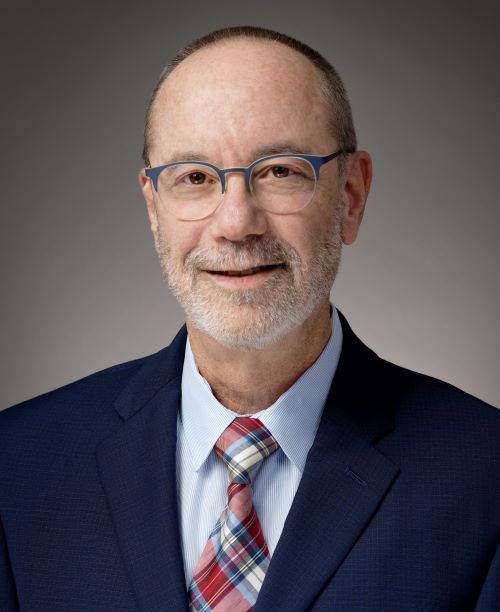PRESENTATION
Behavioral Health System Infrastructure: Is it the Missing Link to Better Outcomes?
Wednesday, December 3 | 2:30 PM - 3:45 PM
State and federal government systems have dedicated significant time and resources to implementing children’s behavioral health systems of care including incorporating their values and principles and expanding access to a comprehensive service array. These efforts have yielded many improvements to systems and services; yet stakeholders are likely to report that their system is not functioning optimally and is not producing the desired outcomes for youth and their families. This panel presentation will explore the role of infrastructure as a potential missing link in children’s behavioral health system of care development as well as highlight the important role of public-private partnership in infrastructure development, share state examples from Connecticut and New Jersey, and explore the federal government’s role in infrastructure development through system of care grants and other support mechanisms.
This presentation will address gaps in our understanding of children’s behavioral health infrastructure. Panelists will offer a working definition of the term, and will identify five critical elements of behavioral health infrastructure for development and improvement: 1) integrated governance and decision-making; 2) structures and processes for blended and braided funding; 3) a central point of access for information, referral, and linkage; 4) workforce development, training, and coaching in effective practices, and; 5) data and quality improvement mechanisms.
Learning Objectives:
- Define and identify at least five critical elements of public children’s behavioral health system infrastructure.
- Explore their unique role in advancing the development and strengthening of behavioral health system infrastructure.
- Review suggested implementation activities for each area and develop initial action plans for contributing to infrastructure development in their home states.
About the Presenters
|
|
|

|
|
|
|
|
|
Gary M. Blau, PhD, is a Licensed Clinical Psychologist with over 35 years of leadership in child, youth, and family mental health. He currently serves as Executive Director Emeritus of The Hackett Center for Mental Health and Senior Fellow for Children’s Mental Health at the Meadows Mental Health Policy Institute, and is also the founder of “Gary M. Blau, Ph.D. & Associates.” Dr. Blau previously served as Senior Advisor for Children, Youth and Families and as Chief of the Child, Adolescent and Family Branch at SAMHSA, where he led national efforts to develop “systems of care.” His earlier roles include Executive Director of The Hackett Center, Bureau Chief for Quality Management and Director of Mental Health at the Connecticut Department of Children and Families, and Director of Clinical Services at the Child and Family Agency of Southeastern Connecticut. He is recognized as the founder of Youth M.O.V.E. and the National Building Bridges Initiative, both of which have made a national impact. Dr. Blau has received numerous awards, including the HHS Secretary’s Award for Meritorious Service and the Youth M.O.V.E. Rock Star Award, now named in his honor. He has authored over 70 publications, edited nine books, and held faculty appointments at Yale, Baylor, and currently the University of Texas Health. Dr. Blau earned his B.A. from the University of South Florida and PhD from Auburn University, and is a proud husband, father, and grandfather.
|
|
 |
| |
|
|
|
Elizabeth Manley, LSW is Faculty and Senior Advisor for Health and Behavioral Health Policy at Innovations Institute. Elizabeth is nationally recognized for her expertise in children’s behavioral health, intellectual/developmental disabilities, and substance use systems design. She has a specific focus on innovation in policy, financing, and practice implementation with states and communities. Her over 30 years of executive leadership at the national, state, and provider levels in both the public and private sectors have given her a unique understanding of the complexity of systems and the impact of innovation. Elizabeth is the former Assistant Commissioner for New Jersey’s Children’s System of Care, where she led transformation and implementation of system innovations including building a trauma informed, seamless public behavioral health system with expertise in addressing the special needs of youth engaged in other child serving systems such as child welfare and juvenile justice. Elizabeth hold a LSW and a certificate in nonprofit management from Rutgers University.
|
|
 |
|
|
|
|
|
Tim Marshall LCSW is a Senior Advisor with the Innovations Institute at University of Connecticut School of Social Work and is also a senior consultant at The Baker Center for Children and Families. He is the former Director of the Office of Community Mental Health at the Connecticut Department of Children and Families. Tim retired from DCF after 30 years of state service. At DCF, Tim had extensive experience in both children’s behavior health and child welfare. He represented Connecticut as the Children’s Mental Health Director at the National Association of State Mental Health Program Directors. He shared in the oversight of the statewide children’s behavioral health system and led CT’s System of Care work for many years. Additionally, Tim led the redesign and re-procurement of CT’s Mobile Crisis Service and the crisis service array, including the development of four crisis assessment and receiving centers and accompanying 14-day sub-acute crisis stabilization units. He was the Co-Chair of the Connecticut Suicide Advisory Board and was the Department's lead in the planning and implementation of the 9-8-8 launch.
|
|
 |
|





